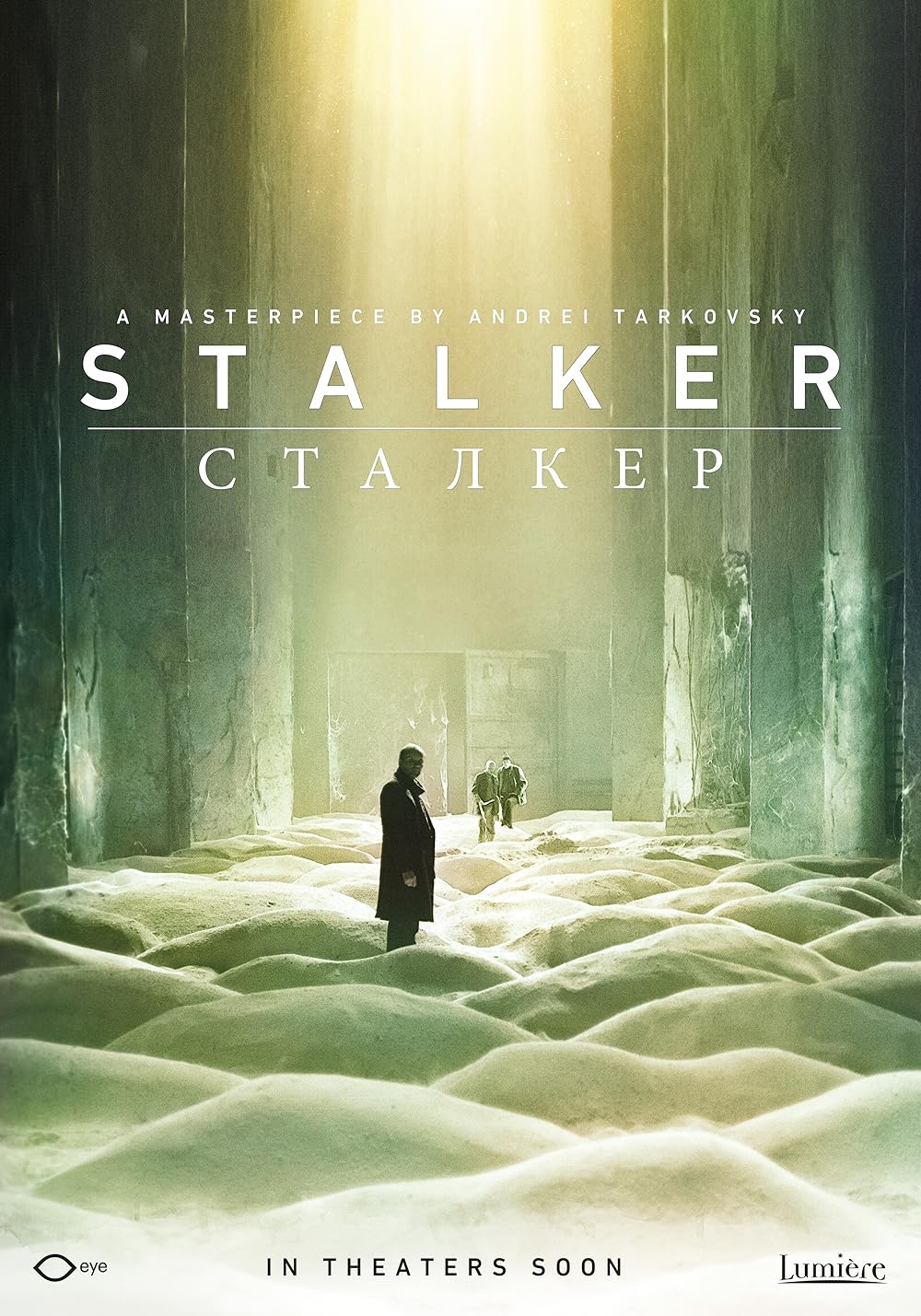Stalker 1979

In the realm of cinema, certain films transcend the boundaries of time and genre, leaving an indelible mark on those who dare to venture into their enigmatic worlds. One such cinematic masterpiece is Andrei Tarkovsky’s “Stalker,” a mesmerizing journey into the depths of the human psyche and the mysteries of existence itself.
Released in 1979, “Stalker” remains as enigmatic and relevant today as it was over four decades ago. Adapted from Arkady and Boris Strugatsky’s novel “Roadside Picnic,” Tarkovsky’s film takes viewers on a haunting odyssey through the Zone, a forbidden area shrouded in ambiguity and danger.
At its core, “Stalker” is a philosophical exploration of the human condition, delving into themes of desire, belief, and the search for meaning in a world fraught with uncertainty. Set in a dystopian future, the film follows the journey of a Stalker, a guide who leads individuals known as the Writer and the Professor into the heart of the Zone, promising them the fulfillment of their deepest desires.
Unveiling the Timeless Enigma of Andrei Tarkovsky’s “Stalker” (1979)
What unfolds is a mesmerizing meditation on the nature of reality and the power of the human imagination. As the characters navigate the treacherous terrain of the Zone, they are forced to confront their own innermost fears and desires, grappling with the existential dilemmas that lie at the heart of their quest.
Central to the film’s mystique is Tarkovsky’s masterful use of imagery and symbolism. From the haunting beauty of the abandoned landscapes to the eerie silence that pervades the Zone, every frame of “Stalker” is imbued with a sense of otherworldly atmosphere. Through his meticulous attention to detail and his innovative visual style, Tarkovsky creates a world that is at once familiar and alien, inviting viewers to contemplate the mysteries that lie beyond the surface of reality.
But perhaps the most profound aspect of “Stalker” lies in its ability to provoke introspection and self-reflection in its audience. As the characters grapple with their own inner demons, viewers are compelled to confront their own fears and desires, questioning the nature of their own reality and the validity of their own beliefs.
Conclusion
In many ways, “Stalker” defies easy categorization, transcending the boundaries of traditional narrative cinema to offer a profound and deeply personal experience. Its themes are universal, its imagery timeless, and its message eternal. Whether viewed as a philosophical treatise, a psychological thriller, or a work of art in its purest form, “Stalker” continues to captivate and inspire audiences around the world, reminding us of the boundless potential of cinema to illuminate the mysteries of the human soul.
